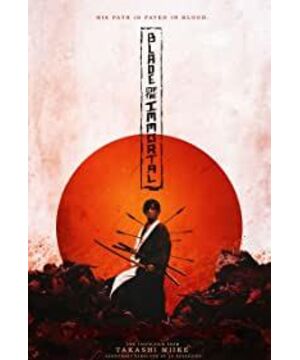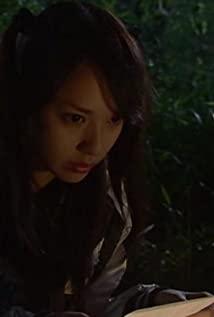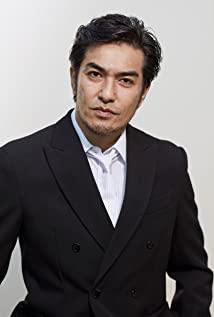http://ent.sina.com.cn/m/f/2017-05-21/doc-ifyfkqks4392328.shtml
Sina Entertainment News Japanese ghost director Takashi Miike came to the 70th Cannes Film Festival with his new film "Infinite Residents". The story of the film revolves around the undead samurai played by Japanese national idol Takuya Kimura. He constantly fights monsters and upgrades in the film. The scene was hot and fierce. This time he participated in a non-competitive show, but he has an official press conference and prime time red carpet premiere arrangements. The treatment given to him by the film festival organizing committee is equivalent to a competition film, which gives a glimpse of how Cannes loves him. In fact, as a genre film director with a strong author stylization, he often shuttles through various units in Cannes, and his fate is the same as that of other authorized genre film directors such as Johnnie To. He is favored by Cannes, but he also wins an award. Less than.
He doesn't care about awards at all, and he is very relaxed every time he meets him in Cannes, talking and laughing during the interview. He has always been avant-garde and impactful in appearance shaping, but he himself is a humble and joking Japanese uncle. The last time he came to Cannes was the finalist of the "Shield of Straw" starring Matsushima Nanako, and Sina Entertainment conducted an exclusive interview with him at that time. He said at the time: "Why should I work at the speed of making 3 films in 2 years? Because I have to support 3 children!" Talking about the style of his work is very different from other art films at the Cannes Film Festival, he bowed and said, "That's fine. The audience in Cannes, please be gentle with my work."
During the film festival, Sina Entertainment was also fortunate to participate in a group interview with director Takashi Miike.
Question: When I was an exchange student in Japan 20 years ago, Takuya Kimura had already made his debut as a teenage star. It was a bit strange to see him appear in such a violent film. Why did you choose him to play?
Takashi Miike: Takuya Kimura’s public image has not changed much in the past 20 years. It’s amazing. It’s not easy to maintain this state for so long. His group SMAP decided to disband last year, but we didn't know this would happen when we filmed. It was my idea to choose him, and the producers always advised me "he definitely won't take this play". I thought it wouldn't be a loss to ask, so I asked him. He said very happily that I would take this play. It may be my usual optimism that eventually contributed to this incident, but Kimura himself is also an artist who dares to try different roles.
Question: This movie is adapted from a comic, but the overall structure of the movie is more like a game. Every time you defeat an enemy, you get a weapon. The next enemy is always stronger. The protagonist's immortality makes him fight to the end. Is this the original design or the director's design?
Miike Takashi: The original work is very peculiar. It took 19 years for the original author to create this manga. During these 19 years, this manga also produced derivative stories. However, the main story is the experience of the hero in the film relying on the undead to protect the little girl. He needs to constantly defeat one enemy after another. To make such a main story into a movie, my focus is on the male protagonist and the little girl, and I didn't spend much time studying the others. Even so, the film now has 2 hours and 20 minutes, which is still too long. I cut a 2 hour version again and trim it well.
The structure you said is like a game, I think it might be because the original is a long serial comic. Readers of serial comics like to watch this kind of game-like story structure. The original work is very well drawn, some parts are drawn in pencil, and the comics look much sexier than the movies. And the original comics are much more violent than the movies.
Q: So you prefer less sexiness and violence than the original, right? But the movie still looks violent.
Takashi Miike: Yes, but my creative idea is to make the original work and the movie into two works like sisters. The reason why the film needs to be a little less sexy is because the original work is relatively long and the author spends a lot of pen and ink to let the little girl talk about her life constantly, taking this opportunity to make the character transition from a little girl to a mature woman. If this design is kept in the movie, then it should naturally make the actor and the little girl have a certain affection, and the direction of affection is the direction that I think the film adaptation is not correct, so I basically did not let the little girl in the movie version , There are any signs of transition to mature women.
However, even though the two characters have no emotional drama, the male protagonist still somewhat unilaterally likes the little girl. He didn't want to possess this girl, he just wanted to protect her, but this willingness alone was enough to prove his love.
Question: You received an interview in Japan not long ago. You mentioned that this movie could not be completed without Takuya Kimura. Which part of Takuya Kimura is the most important to you and impressed you the most?
Takashi Miike: He has been popular as an idol star for 25 years. This is very attractive. The media and audiences like him. He basically has no ordinary life and cannot go where he wants to go freely. What's interesting is that a big star like him is actually married and has a family. He is the only one of the former SMAP members with a family. He is able to balance work, life, public image and other aspects, and his family gives him a very special strength. I am very interested in how big stars like him view the world. If the immortal man in the film is alive, he may be living somewhere in Japan. Maybe Takuya Naga Kimura looks like this (laughs). He himself (as a star) is very fragile and strong.
Q: Is the sound design different this time from before?
Takashi Miike: Sound technology is changing with each passing day, and it takes a lot of time to research if you want to do well. Japanese filmmakers still pay more attention to vision, not hearing. Many filmmakers say that more money should be spent on photography, and those who do sound design are often frustrated when they hear this argument. One of the duties of a film director is to prevent this frustration from exploding on the crew (laughs). So every day we have a lot of meetings to discuss these things. Japan now uses a lot of post-recording, and after the pre-shooting is completed, the film is superimposed over and over again in the studio.
Our film is different. We design in advance which sound we want to use and then shoot. This is generally the way in the United States, but not in Japan. Our film is a period drama (the main story takes place in ancient times), so I hope to make every knife and every horse sound like something from that era with a limited budget.
Q: This is your 100th movie. Have you ever wanted to celebrate?
Takashi Miike: When you said the 100th part, you must count the low-cost video tapes I made. In Japan, video tape movies (VHS) are not actually movies, and this sub-genre hardly exists outside of Japan. However, my video film "Bull Head" (2003) was selected into the director's biweekly unit that year. The script of this film is original. At that time, the director said to me fortnightly, "This is a movie, and we invite you to attend our film festival as the director of this movie." The production cycle of videotape movies like this can be very short. I am lucky to be able to shoot a large number of videotape movies early in my career. But in fact, I think other directors could have been more diligent than me. Some of them shoot more than me. Do not you think so? (laugh)
Q: What supported your continued shooting?
Takashi Miike: I started from acting as a deputy to others. I'm very lazy when I'm not filming. My usual habit is to drink a can of beer in the morning. (Laughs) But I don't really take a lot of rest. I like filming very much and I like to go out on location. When I'm not working, I feel more stressed than when I'm working. But I never made a lot of movies as my goal, or that I didn't think it was a good thing to make a lot of movies. Anyway, I have had the opportunity to make so many movies, I am very happy. You ask me whether I will continue to shoot at this rhythm or slow down? I never thought about it. This is what my environment tells me, not my own choice. Maybe I don’t have any new news for the next three years. You still have to ask "Where have Michi gone in recent years?" (laughs)
Question: You describe Kimura Takuya as a star idol. I've heard many Japanese reporters and audiences describe him as an idol, but what they mean is that he can't rely on his acting skills, but rely on his idol temperament to work hard in the entertainment industry. What do you think of their evaluation of Takuya Kimura? Is his role in the film a role that requires high acting skills?
Takashi Miike: The hero of the film is immortal. What do you think a person who cannot die should look like? What do they eat and how do they eat? How should an actor perform his immortality? I think it is not a good idea to think too much about what technique to use to express immortality. You are likely to fall into the trap of over-performance. I think in the image of Takuya Kimura, he should not think so much about technology. He can just use his current image to help him enter the play, or he can enter the play in a very casual state.
Indeed, he is an idol with a very special status in Japan. When you, as a director, ask him to act in your own work, you usually don't need such an actor to give a overflowing performance. If you express the immortal body in a surreal and superficial way like this film, I think what you give in the movie, the audience will accept it, very simple, they will not be too much Care about other things. During the filming process, I wanted to keep it simple, instead of letting myself be misled by too many other things. His image in this film may feel similar to Schwarzenegger's screen image. (Reporter: Schwarzenegger came to Cannes this time too!) I knew he was here, so I mentioned him.
Question: A friend of mine who is not in the movie circle watched this film the day before yesterday and shouted after watching: "This is too violent! What's wrong with the Japanese, why have to film such violent things!"
Takashi Miike: Director Sonoko On and I are different from Japanese directors. Ninety-nine percent of Japanese movies are not violent. Some people may think that they should stand up and strike a balance. The garden is gentle and I am left with the 1%. This is not what the audience told us to shoot, this is what we want to shoot. If your friend pays attention to some other Japanese movies, he might think "Why are Japanese movies so childish!" But if he really thinks my films are too violent, then I have to say that I regret him. (laugh)
View more about Blade of the Immortal reviews










